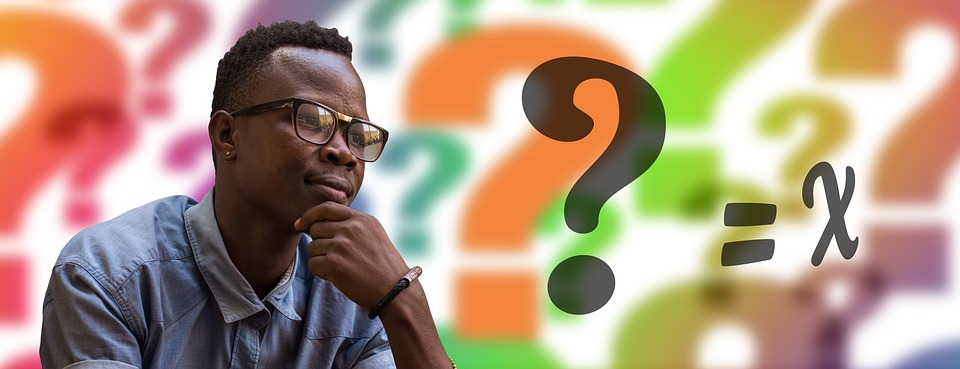Game Theory: The Mathematical Playground of Strategy and Decision Making
Introduction
Game Theory, a mathematical framework for strategizing in competitive settings, serves as a vital tool across diverse fields such as economics, political science, psychology, and biology. It provides a structured way to analyze interactions among rational agents, each pursuing their own goals. In this article, we delve into the intricacies of Game Theory, exploring its definitions, historical background, essential concepts, and real-world applications.
Historical Background
The roots of Game Theory can be traced back to the early 20th century, with most scholars attributing its formal establishment to mathematician John von Neumann and economist Oskar Morgenstern. Their 1944 book, Theory of Games and Economic Behavior, laid the groundwork for this discipline by providing foundational concepts and theorems. However, earlier contributors include mathematician Émile Borel and economist Vilfredo Pareto.
The late 20th century saw a surge in Game Theory’s popularity, largely due to the work of John Nash. Nash’s concept of the Nash Equilibrium—where no player can benefit by changing their strategy if other players keep theirs unchanged—has become a fundamental element of modern economic theory. In 1994, Nash, along with Reinhard Selten and John Harsanyi, received the Nobel Prize in Economic Sciences for their pioneering contributions.
Key Concepts in Game Theory
1. Players
In Game Theory, a "player" refers to any individual or group making decisions within the game. Players are rational in the sense that they aim to achieve the best possible outcome for themselves.
2. Strategies
A strategy defines a player’s plan of action in a game, dictating how they will respond to other players’ moves. Strategies can be simple, involving a single action, or complex, involving multiple contingencies.
3. Payoffs
The outcome of a player’s decision is quantified in terms of "payoffs," which may represent utility, money, social benefits, or other forms of value. Understanding payoffs is critical for determining the best strategies.
4. Games
Games can be broadly categorized into two types: cooperative and non-cooperative. Cooperative games involve binding agreements among players, whereas non-cooperative games are characterized by individual strategies without collaboration.
5. Equilibrium
Equilibrium concepts, including Nash Equilibrium, are balances in strategies where no participant has anything to gain by changing their strategy unilaterally. The search for equilibria helps predict the outcomes of strategic interactions.
Types of Games
1. Zero-Sum Games
In zero-sum games, one player’s gain is equivalent to another’s loss. A classic example is poker, where the total money won by one player is equal to the total money lost by others.
2. Non-Zero-Sum Games
These games allow for the possibility that all players can benefit (or suffer) simultaneously. A common occurrence can be observed in trade negotiations or environmental agreements.
3. Symmetric vs. Asymmetric Games
In symmetric games, all players have the same strategies available, while in asymmetric games, different players have different strategies and payoff structures.
4. Extensive Form Games
These games are represented in a tree-like structure, showing the sequence of moves and possible decision paths. They are particularly useful in situations involving sequential decisions, such as negotiation processes.
5. Repeated Games
In repeated games, the same game is played multiple times, fostering cooperation and the evolution of strategies over time.
Applications of Game Theory
1. Economics
In economics, Game Theory is used to model and understand competition, market behavior, and the strategic interaction of firms. For instance, oligopolistic firms often engage in strategic decision-making to optimize their pricing and output levels, considering their competitors’ likely responses.
2. Political Science
Game Theory plays a pivotal role in political science, particularly in analyzing electoral systems, voting behavior, and international relations. The concept of deterrence in military strategy is often examined using Game Theory models.
3. Biology
In evolutionary biology, Game Theory explains the strategic interactions of species, highlighting how evolutionary stable strategies can emerge. Concepts such as the “Hawk-Dove” game illustrate how organisms adopt various strategies to maximize reproductive success.
4. Social Sciences
In sociology and psychology, Game Theory models collective behavior and social interaction, providing insights into cooperation, trust, and negotiation.
5. Computer Science
With the advent of artificial intelligence, Game Theory is extensively applied in areas such as algorithm design, cybersecurity, and multi-agent systems.
Modeling and Solving Games
1. Normal Form Representation
Normal form, or strategic form, represents a game using a payoff matrix. This matrix succinctly captures the strategies and payoffs for each player.
2. Extensive Form Representation
As mentioned earlier, extensive form games use trees to represent sequential moves, allowing for an analysis of the timing and nature of decisions.
3. Mixed Strategy Nash Equilibrium
In many cases, players may employ mixed strategies—randomizing their choices among multiple pure strategies. The mixed-strategy Nash Equilibrium helps in identifying these probabilities, particularly in games where no pure strategy equilibrium exists.
Critiques of Game Theory
Despite its widespread use, Game Theory is not without its critiques. Some scholars argue that the assumption of rationality and self-interest is overly simplistic and does not always reflect human behavior. Critics emphasize that players often exhibit irrationality, emotions, and social preferences that deviate from the rational agent paradigm.
Additionally, the real-world applicability of theoretical models can be limited. The complexity of human interactions, coupled with incomplete information, makes it challenging to predict behaviors accurately.
Conclusion
Game Theory stands as a rich and influential field, providing invaluable insights into strategy and decision-making across various domains. Through its diverse terminology and frameworks, it enables us to parse complex interactions and predict outcomes in competitive environments. Despite its limitations and assumptions, the continuous evolution of Game Theory ensures its relevance in understanding the intricacies of human behavior and strategic interaction. As we move forward, the applications of this mathematical playground will likely expand, driven by technological advancements and interdisciplinary research.
Modern Footnote Sources:
- Von Neumann, J., & Morgenstern, O. (1944). Theory of Games and Economic Behavior. Princeton University Press.
- Nash, J. F. (1950). "Equilibrium points in n-person games". Proceedings of the National Academy of Sciences.
- Osbourne, M. J., & Rubinstein, A. (1994). A Course in Game Theory. MIT Press.
- Gibbons, R. (1992). A Primer in Game Theory. Pearson.
- Alvard, M. S. (1995). "Cooperation in a foraging society". Current Anthropology.
- Fudenberg, D., & Tirole, J. (1991). Game Theory. MIT Press.
- Myerson, R. B. (1991). Game Theory: Analysis of Conflict. Harvard University Press.
- Binmore, K. (2007). Playing for Real: A Text on Game Theory. Cambridge University Press.
- Camerer, C. (2003). Behavioral Game Theory: Experiments in Strategic Interaction. Princeton University Press.
- Tversky, A., & Kahneman, D. (1974). "Judgment under uncertainty: Heuristics and biases". Science.


























Add Comment